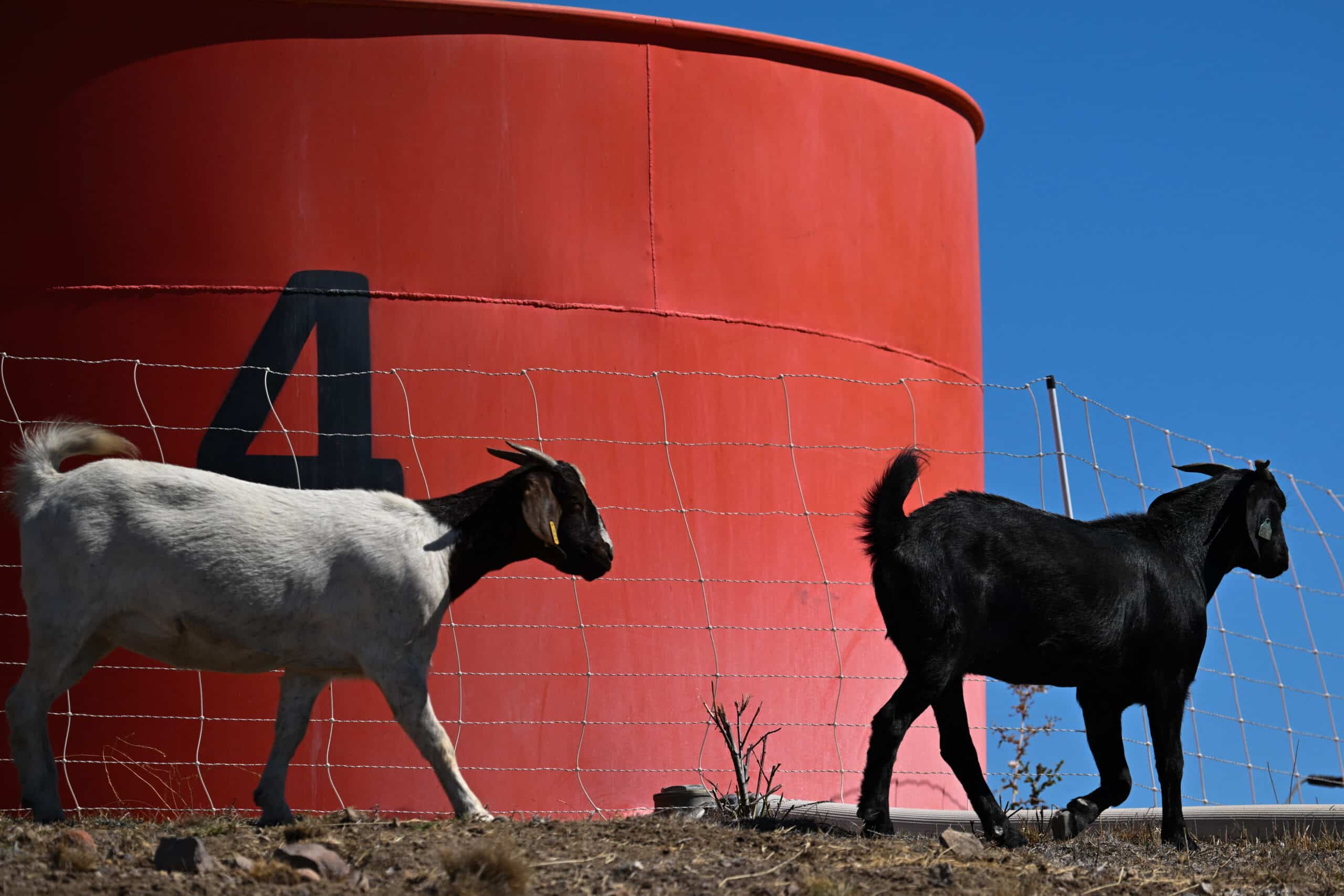No more Q fever cases: Ban on live goat imports from US lifted

Goats from the Shepherdess Land and Livestock Company walk past a water storage tank for firefighting helicopters during a demonstration of prescribed grazing methods for fire fuels reduction at the Los Angeles County Fire Department’s Helispot 69Bravo in the Santa Monica Mountains on August 20, 2024 in Topanga, California. – The use of herbivores including sheep and goats can be a more effective method of reducing wildfire fuels instead of machinery while also improving ecosystem health in an environment impacted by climate change. (Photo by Patrick T. Fallon / Agence France-Presse)
The Department of Agriculture (DA) has lifted the ban on importing live goats from the United States since the Q fever disease is no longer prevalent there.
Memorandum Order No. 43 will be in force immediately.
It stemmed from American authorities’ report to the World Organization for Animal Health, which said there were no longer Q fever cases in the United States.
The DA imposed the temporary import ban via Memorandum Order No. 26 issued in June as the US detected Coxiella burnetti on imported goats.
READ: 88 animals killed in Marinduque to curb spread of Q fever
Shortly after, the Bureau of Animal Industry (BAI) culled more than five dozens of goats sourced from the US and implemented stringent measures to prevent the spread of infectious diseases to both humans and animals.
In an interview on Wednesday, Agriculture Assistant Secretary Arnel de Mesa said there were no longer active Q fever cases in the Philippines.
“The Q fever has been controlled but then again, we’re still cautiously optimistic that … the disease is [just] there. We just don’t know when it will become active again. But for us, at the BAI and the DA, we have already controlled [it],” he said.
READ: DA: No active cases of Q fever in PH, final report out soon
The BAI confirmed the country’s first case of Q fever in June.
According to the European Centre for Disease Prevention and Control (ECDC), the rare illness affects both humans and animals. A person may catch the disease through contaminated milk or when they come into contact with the fetus, placenta or fluids from an infected animal.
The ECDC said some people don’t have symptoms, while others will experience headaches, fever, chills, muscle soreness and, in some cases, pneumonia.
